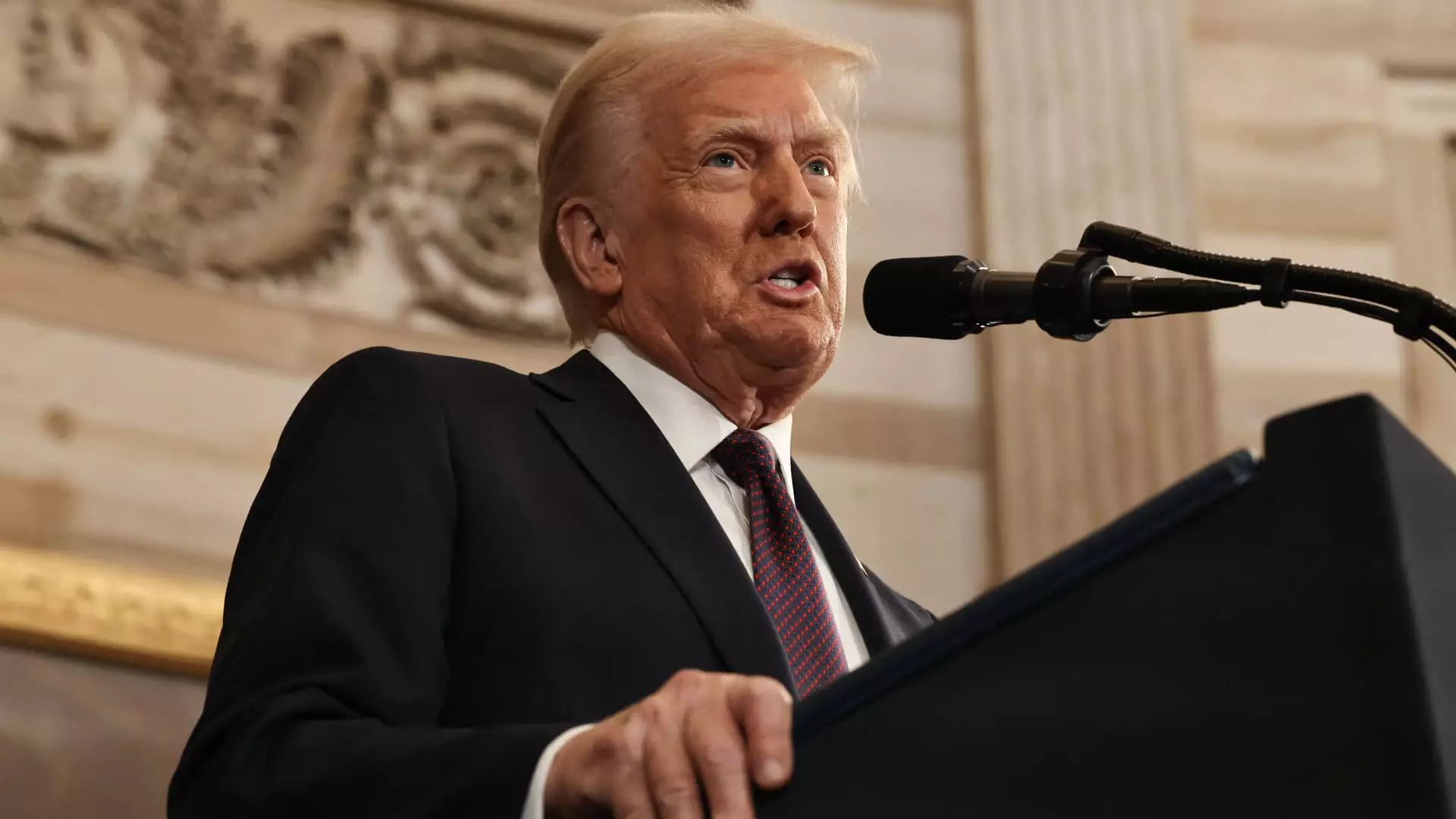In an astonishing twist of political fate, former President Donald Trump’s grandiose proclamations of peace have crumbled spectacularly. Five months ago, he roared into office with promises of unification, of restoring strength where the world saw discord. However, the recent U.S. military strikes on Iran’s nuclear facilities—specifically in Fordo, Natanz, and Isfahan—have thrust his administration’s credibility into the spotlight, revealing a disconcerting reality: the very peacemaker now sits at the precipice of igniting further conflict.
It is remarkable how quickly the narrative has shifted, morphing from a rhetoric of restraint and diplomacy to aggressive military action. Trump once framed his presidency around the desire to end longstanding conflicts, claiming that true success would come from avoiding wars, not merely waging them. This dissonance raises acute questions: Has the promise of peace been but a bluff, or has he genuinely been cornered by events beyond his control?
Promises Shattered
The echoes of Trump’s inauguration speech still ring, filled with declarations of peace and unity. Yet, as U.S. missiles descended on Iranian territories for the first time amidst ongoing regional turmoil, his legacy faces an existential crisis. The core contradiction lies within the underlying motivation of this military aggression. Trump’s recent commentary about preventing World War Three beautifully juxtaposed with this new offensive, illustrating the stark inconsistency that has become a hallmark of his leadership style.
It’s particularly troubling that merely two days prior to these strikes, he suggested a potential for diplomatic resolution in the conflict between Israel and Iran. Such a drastic change in tone raises suspicions about the sincerity of his diplomatic overtures. Can we discern a calculated strategy, one that panders to a hawkish electoral base, or is this simply reactive decision-making from a leader who once touted himself as a unifier? The fickle nature of Trump’s approach to international relations paints a rather chaotic picture of U.S. foreign policy, one based more on whims than thoughtful strategy.
Consequences of a Misguided Approach
The American populace, still reeling from the implications of his earlier years in office, now faces the unprecedented fallout of these latest choices. By launching an offensive against Iran, Trump not only directly challenges the Iranian regime but also prompts a series of far-reaching repercussions for international stability. The historical context of U.S.-Iran relations is marred with conflict and mistrust, but a military escalation at this juncture raises grave concerns regarding civilian safety and geopolitical stability.
Moreover, with mounting casualties and infrastructural devastation reported by Iranian media, the moral high ground—so often claimed by leaders in military interventions—now appears morally indefensible. The humanitarian implications of such actions risk alienating allies who once stood by U.S. interests in the Middle East, raising doubts about the efficacy of such forceful tactics in a decidedly complex web of regional politics.
A Shift in International Relations
What is perhaps most worrisome is the potential for this act of aggression to stall any remaining avenues for negotiation. Trump’s claims of being a peacemaker now seem hollow, particularly against the violent backdrop of U.S. bombs raining down on Iranian soil. As Washington willingly steps into the fray it once sought to avoid, the future of diplomacy dims, overshadowed by impending conflict.
In an era that requires collaboration and nuanced diplomacy over brute force, Trump’s recent military action signals a regressive step not only for U.S. policy but also for the very essence of global cooperation. Critics will undoubtedly scrutinize whether his earlier aim of creating stability in the Middle East has now transformed into a destabilizing nightmare, with fear and uncertainty reigniting long-held grievances within the region.
Thus, as we reflect on the stark contrast between Trump’s original peace-oriented platform and his current militarized stance, we are confronted with a sobering reality. What remains of his promise to unite is now marred by chaos, casting long shadows on the future of U.S. foreign policy and the fragile state of international order.

